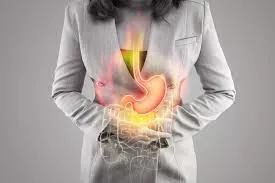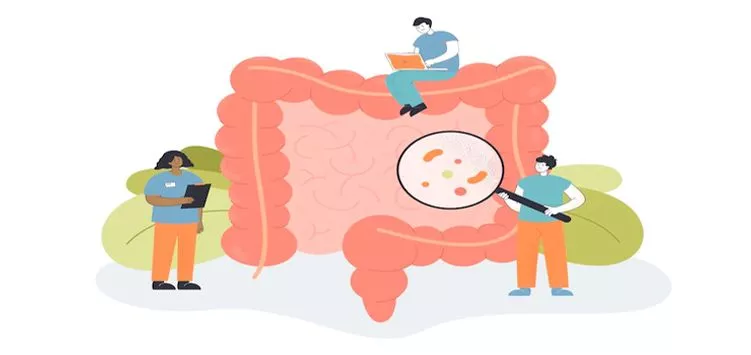Tropical countries frequently experience gastrointestinal problems whose manifestations can include symptoms such as diarrhoea, abdominal pain, abdomen swelling, bleeding in the intestines, intestine obstruction, difficulties in the absorption of nutrients and mal Certainly, diarrhoeal infections have implications on children’s health. If symptoms persist, consulting a Gastroenterologist in Kochi Kerala is advisable for timely diagnosis.
What are gastrointestinal diseases?
Gastrointestinal diseases affect the entire GI system, from the mouth to the anus. There are two types: functional and structural. Such conditions include colitis, food poisoning, lactose intolerance and diarrhoea. For advanced care, seeking evaluation at a Gastroenterology hospital in Kochi Kerala can help detect and manage such issues effectively.
Functional Gastrointestinal Diseases
Functional disorders can be detected by the GI tract appearing normal during examination but moving abnormally. Major problems of the GI tract – Colon and Rectum. Constipation, IBS, nausea, gas, bloating and diarrhoea are some of the most common functional GI diseases.
Several factors can interfere with GI tract function, including:
- A diet lacking in fibre.
- Low physical activity.
- Routine changes, such as travel.
- Excessive consumption of dairy products.
- Stress.
- Avoiding bowel movements, possibly due to haemorrhoids.
- Anti-diarrheal medicine overuse could hinder bowel muscle movements.
- Use of calcium or aluminum-containing antacid medicines.
- Certain drugs, including antidepressants, iron supplements, and narcotic pain relievers.
- Pregnancy.
Furthermore, some people have increased sensitivity in their GI tract organs, which is known as visceral hypersensitivity. Even when the organs are working correctly, this increased sensitivity might cause pain or discomfort.
Gastrointestinal Structural Disorders
Structural GI illnesses can be identified by oddities that are visible during the examination and result in unsuitable functions. Surgical excision of the structural abnormalities may be required in some circumstances. Strictures, stenosis, haemorrhoids, diverticular disease, colon polyps, colon cancer, and inflammatory bowel disease are all instances of structural GI illnesses.
Common Gastrointestinal Conditions and Their Treatment
Gastroenterologists and colorectal surgeons (proctologists) are experts in treating gastrointestinal problems. Here are some of the most prevalent conditions they treat:
Constipation: Constipation, a functional issue, makes regular bowel movements difficult. It can be caused by a lack of dietary fibre, a change in routine, or a change in food. Constipation frequently causes intestinal straining, tiny, hard stools, and anal disorders such as fissures or haemorrhoids. It is not usually indicative of a major medical problem.
Treatment includes:
- Increasing your fibre and water consumption in your diet.
- Exercise on a regular basis.
- Responding to the need for a bowel movement.
- If needed, use laxatives as directed by your doctor.
IBS (Irritable Bowel Syndrome: IBS (Irritable Bowel Syndrome: IBS is characterized by the spasmodic contractions of the intestinal muscles. Certain meals, drugs, and emotional stress can all be triggers. Abdominal pain, increased gas, bloating, and changes in bowel habits (diarrhoea, constipation, or both) are all symptoms of IBS.
Treatment includes:
- Reducing caffeine consumption.
- Increasing the amount of fibre in your diet.
- Recognising and avoiding trigger foods.
- Managing stress through various techniques.
- Medications recommended by your physician.
- Keeping hydrated and getting enough rest.
Haemorrhoids: Haemorrhoids are structural conditions characterised by enlarged veins in the anal canal. They are caused by chronic pressure during bowel motions, chronic diarrhoea, or pregnancy.
Treatment for internal haemorrhoids may involve:
- Improving bowel habits.
- The use of ligating bands by your healthcare provider to eliminate affected vessels.
- Surgical removal in cases of large, painful, and persistent haemorrhoids.
- External haemorrhoids are veins just under the skin outside the anus and can lead to painful blood clots.
External haemorrhoids are treated using the following measures:
- Removal of the clot and vein under local anaesthesia.
- Surgical removal of the haemorrhoid itself if necessary.
- The choice of successful interventions greatly depends on what kind of haemorrhoids one has.
Anal Fissures: Anal Fissures: These are painful rips or tears that occur at the anal lining as one passes hard and wet. After bowel motions, these cracks expose the underlying muscles, causing acute searing pain, bleeding, or spasms. Pain medication, dietary fibre to prevent bulky stools, and warm sitz baths are all part of the first treatment. If these procedures do not relieve the pain, surgery may be required.
Perianal Abscesses: Perianal abscesses develop when anal glands get obstructed, resulting in bacterial infection and pus buildup. Treatment involves draining the abscess, usually performed under local anaesthesia in the hospital.
Anal Fistulas: Anal fistulas are anomalous passageways from the anal canal to the skin surrounding the anus that frequently occurs as a result of abscess drainage. This leads to itching, irritation, drainage, pain, and bleeding. Fistulas are rarely self-healing and usually necessitate surgery to drain the abscess and plug the fistula.
Diverticular Disease: Diverticular disease is defined by the occurrence of tiny outpouchings (diverticula) in the large intestine's muscular wall. These are most common in the sigmoid colon and are frequently caused by a lack of dietary fibre. Infection (diverticulitis), bleeding, and blockage are all possible complications. Treatment may include constipation management, antibiotics for severe diverticulitis patients, and surgery as a last resort for those with major problems.
Colon Polyps and Cancer: Polyps in the colon are a common starting point. Early detection and treatment enhance outcomes dramatically.
These gastrointestinal conditions can vary in severity, so it's essential to seek medical advice and follow the recommended treatments and preventive measures.
Gastrointestinal Disease Prevention
You can take the following steps to avoid or reduce your risk of gastrointestinal disease:
- Healthy Lifestyle: Eating a proper diet, exercising regularly, and taking care of one’s stress help keep an individual healthy.
- Good Bowel Habits: Cultivate good bowel habits which include prompt response when you feel the urge to pee among other important habits preventing excessive strainage.
- Cancer Screening: Colonoscopy should be recommended in average-risk adults of 45 years old as a screening method for colorectal cancer. Screening for colorectal cancer and polyps should start 10 years before the age at which the affected family member developed the condition.
Conclusion: If you are experiencing signs of colorectal cancer, contact your healthcare professional as soon as possible. Changes in bowel habits, blood in the stool (bright or black), stomach pain, narrow stool, a feeling of incomplete bowel emptying, unexplained weight loss, exhaustion, and anaemia (low blood count) are all common symptoms.







